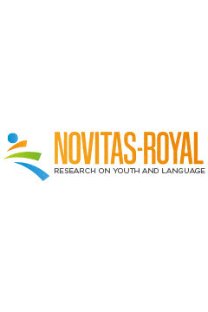The Attitude and the Impact of the American English as a Global Language within the Saudi Education System
Bu çalışma 11 Eylül saldırısının Suudi Arabistan eğitim sistemi üzerindeki etkilerini araştırmayı amaçlamaktadır. Özellikle, meydana gelen bu olayın Suudi Arabistan toplumu ve eğitim sistemi üzerindeki etki sürecini, Arap dilbilimcilerin daha çok İngilizce daha az İslam görüşü ışığında incenmesi hedeflenmiştir. Bu çalışma ayrıca, Suudi Arabistan, Cidde‟deki Kral Abdül Aziz Üniversitesinin birinci sınıfında okuyan Suudi öğrencilerin katılımında yapılmış bir durum çalışmasını kapsar. Yeni müfredatla İngilizce öğrenen, birinci yılın ikinci dönemindeki 65 Suudi öğrenciyle ilgili konuya dair 12 maddelik bir anket uygulanmıştır. Sonuçlar, gençliğin Batılı ideolojiye, İngilizce öğrenmeye ve Batı kültürüne karşı duygularına dair önemli bulgular sağlamaktadır. Bulgular sadece ilgili örneklemle sınırlı olsa da görülmüştür ki, katılımcıların büyük çoğunluğu İngilizce bilgilerini artırmak amacı ile İngiliz dili ve kültürünü öğrenmenin gerekli olduğunu düşünmektedir.
This paper investigates the impact of 9/11 on the educational system in Saudi Arabia. In particular, it discusses how this phenomenon took its course to influence the English teaching system in Saudi Arabia, and the attitude and the impact of this new phenomenon in the Saudi society, in light of the current debate between Arab linguists on the issue of more English less Islam. It also presents a case study on a group of Saudi freshmen students studying English at King Abdul Aziz University, Jeddah, Saudi Arabia. A 12-item questionnaire, related to this topic was distributed to 65 Saudi students studying English in their second semester of the New English Curricula. The findings provide valuable data on how the youth feel towards Western ideology, learning English and Western culture. Although the findings are context specific, they indicate that the Saudi students agree (for the most part) that both the study of the English language and its culture are necessary in order to develop their English comprehension.
___
Achebe, C. (1975). The African writer the English language: In morning yet on creation day. London: Heinemann.Al-Abrashi, M. (2003, May 31). This is the language of infidels. Al-Arabiya. Available at: www.alarbiya.net.
Azuri, L. (2006). Debate on Reform in Saudi Arabia: MEMORI. Bahgat, G. (1999). Education in the gulf monarchies. International Review of Education 45 (2), 127-36.
Bar, S. (2006). Warrant for Terror: Fatwas of Radical Islam and the Duty of Jihad. Lanham, MD, Roman & Littlefield.
Beebe, L., T. Takahashi and R. Uliss-Weltz (Eds.) (1990). Pragmatic transfer in Esl refusal. Newbury: House Publishers.
Brown, N. J. (2001). Democracy, history and the contest over the Palestinian curriculum. Washington DC: The Adam Institute.
Connor, U. (1996). Contrastive rhetoric: cross-cultural aspects of second language writing. New York: Cambridge University Press.
Curricular change will harm national principles. (2002, November 15). A-Watan.
Dankowitz, A. (2004). saudi study offers' critical analysis of the kingdom's religious curricula. MEMORI.
Editorial (2006, April 4). We‟re trying hard to change. USA Today.
Editorial (2002, July 20). English as weapon to fight terror. The Weekend Australian, p. C13.
Editorial. (2007, October 10). Dropping hate 101. Washington Times.
Educational reform in Saudi Arabia: An interview with prince Saudi al-Faisal. (2006, May 18). USA Today.
Friedman, L. T. (2002, February 20). The Saudi challenge. New York Times.
Glasser, S.B. (2003, February 2). Qatar reshapes its schools, putting English over Islam. Washington Post. A20.
H. Con. Res 432, 107th Cong., 2nd Sess. Expressing the sense of congress regarding the education curriculum in the Kingdom of Saudi Arabia. Washington, DC., 2002, June 27.
An Interview with Al-Sheikha Lubna Al-Qasimi. (2007). Video. John Defterios, Oct. 05.
"An Interview with Prince Naif Ibn Abd Al-Aziz." Al-Sharq Al-Awsat December 3 2002.
Johnson, P. (2004). America‟s new empire for liberty. Hoover Digest. 4(3)
Kabel, A. (2005). The discourse of appropriation: a response to Karmani. Applied Linguistics. 28(1) 136-42.
Kaplan, R.B. (1966). Cultural thought patterns in inter-cultural education. Language Learning. 16, 1-20.
Karmani, S. (2005). English, 'terror' and Islam. Applied Linguistics 26(2), 262-67.
Kasper, G. (1992). Pragmatic transfer. Second Language Research 8(3).
MEMORI. (2007). Available at: http://memri.org/index.html.
On the issue of curricula change. (2004). AL-Arabia TV, July 20.
Phillipson, R. (1992). Linguistic imperialism. Oxford: Oxford University Press.
Reddy, M., (Ed). (1979). The conduit metaphor in a. ortony. Cambridge: Cambridge University Press.
The role of English in Saudi Arabia nowadays." Arab News (2002, December 14). sec. Education: 2.
Rugh, W. (2002) Arab education: tradition, growth and reform. The Middle East Journal 56(3), 396-414.
Saudi Arabia to recruit 935 English Teachers. (2003, Ocober 30). Arab News. sec. Education.
Saudi citizen was sentenced to thousands of lashes. Okaz (2002, December 22). p.14.
Saudi public school curriculum and their Islamic studies. (2006). Washington Post.
Scott, M S, and G R Tucker. (1974). Error analysis and English-language strategies. Language Learning. 24, 69-97.
Shafi, Mohammad. (1983). Teaching of English as a foreign language: The Islamic approach. Muslim Educational Quarterly. 1(1).
Staff statement no. 19: outline of 9/11 plot. Twelfth public hearing. (2004). Washington, DC: The 9/11 Commission.
SUSRIS. Educational reform in Saudi Arabia: We're trying hard to change. (2006, June 8) . ABC News. Available at: http://www.sauid-usrealtions. org/articles/2006/ioi/060608-saudi-textbooks.html. 30/10/2007.
Top education panel debates English at primary level. (2003, June 18). Arab News.
We will never change. (2002, October 20). Al-Sharq Al-Awsat. p.1.
Widdowson, H G. (2003). Defining issues in English language teaching. Oxford: Oxford University Press.
Youssef, A. & Simpkins, E. (1985). Parent attitudes on Americanization and bilingual education: The Dearborn, Detroit, and Farmington study. Bilingual Review,12(1).
- ISSN: 1307-4733
- Yayın Aralığı: 2
- Başlangıç: 2007
- Yayıncı: -
Sayıdaki Diğer Makaleler
Youth in Crisis: An Eriksonian Interpretation of Adolescent Identity in "Franny"
Affiliating with Rap Music: Political Rap or Gangsta Rap?
Using Wiki-based Peer-correction to Develop Writing Skills of Brazilian EFL Learners
Winds of Change in the English Language- Air of Peril for Native Speakers?
